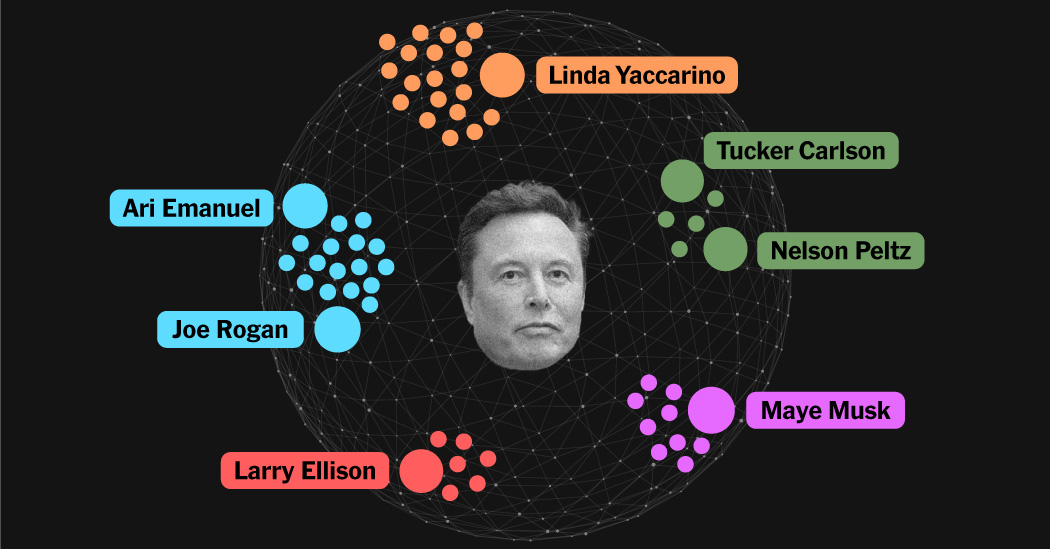Netflix has long been a company known for its secrets: no Nielsen ratings, little feedback on why shows are canceled, no box office numbers for the rare movies that are actually released in theaters.
Yet for a place defined by its opaque approach to the outside world, the streaming giant has long been aggressively transparent internally. The company’s philosophy was immortalized in 2009 when Reed Hastings, the company’s co-founder and chief executive, first laid out the corporate ethos in a 125-slide presentation that introduced new buzzy phrases like “stunning colleagues,” “the keeper test” and “honesty always.”
The presentation, with its insistence on constant and unfiltered candor, felt both brutal and refreshingly antithetical to Hollywood’s normal way of doing business. To the frustration of former employees and current competitors, it may just be the blueprint that has enabled Netflix to have so much success while its rivals have stumbled.
Three more culture memos have followed over the years. Before being released, they are pored over and analyzed for months by top executives. At the same time, any employee can pop into the Google Doc where the memo is being assembled to leave a thought or a comment.
The latest iteration of the document, which was released internally on May 8 and will soon be made public, underwent eight months of vetting and received 1,500 comments from employees, according to Sergio Ezama, Netflix’s chief talent officer. It is five pages long (half the length of Mr. Hastings’s final memo in 2022), and some core tenets have changed, however slightly.
When Mr. Hastings titled his 2009 presentation “Netflix Culture,” he gave it the subhead “Freedom and Responsibility.” The idea was that Netflix trusted its employees to act in the best interest of the company. If you want a vacation, take a vacation. If you have a baby and need to go on leave, go on leave. Documents were shared widely throughout the company without any fear of leaks.
While those principles remain in practice, the new memo highlights Netflix’s philosophy of “People Over Process” first: “We hire unusually responsible people who thrive on this openness and freedom.”
The keeper test — which is defined as, “if X wanted to leave, would I fight to keep them?” — now includes this disclaimer: “The keeper test can sound scary. In reality, we encourage everyone to speak to their managers about what’s going well and what’s not on a regular basis.”
There is a sentence in the latest memo that reads, “Not all opinions are created equal” because as the organization has grown to more than 13,000 employees, it is no longer feasible for everyone to weigh in on every decision. “It does not scale,” said Elizabeth Stone, the company’s chief technology officer.
The company is never one to shy away from reorganizing itself — a feature that critics say happens too frequently and leaves many employees worrying that they could be fired any day. Mr. Hastings has moved on to the executive chairman role. Ted Sarandos and Greg Peters are the co-chief executives, and change is always afoot. Still, the latest culture memo feels much more about how the streamer expects its employees to behave rather than a treatise for what it wants to become.
“The key about the Netflix culture is we really try to systematically think what generates long-term excellence,” Mr. Hastings said in a video interview from his home in Santa Cruz, Calif. “Certainly a lot of creativity, a lot of freedom, a lot of focus on innovation, and trying to attract and develop people who are self-responsible.”
Talk to the employees who work at Netflix and the sense is that the cultural tenets have infiltrated their lives in ways they weren’t expecting. Many came in skeptical, assuming the memo itself was a public relations effort to make the company stand out. Yet some of those people now describe it as being 80 to 90 percent accurate.
Ms. Stone, who married months after joining Netflix in 2020, said that she and her husband “use certain language now like, ‘Do you have any feedback for me?’ He would be the first to say at a cocktail party that he’s very good at receiving feedback, and he’s still working on giving feedback.”
The document is made to read as aspirational, and there is always room for improvement.
“Are we always totally direct with each other? No. Are we completely devoid of politics? No,” said Spencer Wang, the vice president of finance and investor relations, who has been with Netflix for nine and a half years. The company is not “perfect across all these dimensions, but I would say it is a remarkably accurate description of what we aspire to be and how we generally operate,” he said.
Reflecting on the initial presentation, Mr. Hastings admitted that “leading with freedom was attractive,” adding, “It was good bait.”
But as the company grew, the concept of freedom and responsibility, which many reduced to “FNR,” became weaponized by some employees as justification for doing whatever they desired. One year an assistant expensed $30,000, according to a company official, because there was no rule saying that it wasn’t allowed.
“We care about freedom when it generates excellence, not for its own sake,” Mr. Hastings said. “In hindsight, this is the draft I wish we had 15 years ago.”
From the beginning, Netflix was never going to be a place where most people stayed for their entire careers. Employment contracts don’t exist, and an employee, no matter the rank, can be let go at any time.
While few leave of their own accord (voluntary resignation ranged from 2.1 to 3.1 percent in the last two years), about 9 percent are asked to leave annually. That may be a relief to those who describe the pace as all-consuming and find the company’s key tenet of being “uncomfortably exciting” untenable. The company warns in the memo that the concept may cause “many people” to choose other places “that are more stable or take fewer risks.”
While some employees, including the two co-chief executives, have been with Netflix for over 15 years, many consider sticking it out for five to be a significant achievement.
Still, some find the pressure invigorating. Brandon Riegg, the vice president of nonfiction and sports, said he had often felt stifled when working at the traditional entertainment studios. He calls the culture at Netflix “a life preserver” that has allowed him to make an impact that wouldn’t have been possible at a traditional studio. Five years ago, he persuaded his bosses to release episodes of the reality show “Rhythm + Flow” in batches for the first time. That practice has been repeated with other reality programs like “Love Is Blind” and scripted programming like “Bridgerton” and “Stranger Things.”
He said that while the strategy ran counter to what Netflix had done in the past, executives were willing to try it.
Their approach, Mr. Riegg said, was that “we hired you, and if you think this is the best thing, and you’ve farmed for dissent, and you’ve taken in all the feedback, and this is where you landed, let’s give it a shot.”
Mr. Hastings looked relaxed during the video interview, and that may be because he’s rid of the jet lag and “insane” schedule that used to wear him down as chief executive. (His new life of philanthropy and owning a ski mountain may also be helping.)
Or maybe it’s because he’s no longer subject to the constant feedback the company is known for — something many employees find jarring when entering the Netflix vortex, especially those coming from outside Silicon Valley.
Mr. Wang said that receiving candid feedback was fine but that as an Asian American, he had initially found it hard to provide it because “it rubbed against my cultural background.” More recently, he said, he was told that he’s “too direct,” so he’s now working on being more sensitive.
Ms. Stone, the chief technology officer, recently recounted being at a happy hour event in New York City where an engineer introduced himself and proceeded to say, “I’m the engineer who wrote the bug in the code that brought the service down two weeks ago.”
“He knew introducing himself that way to me would spark a good conversation about what’s the culture around improvement,” she said. “It wasn’t like: ‘Why is this person still here? This person should be fired.’”
As for Mr. Hastings, he may not have to take any more feedback, but he can still dole it out. He said he appreciated that Mr. Sarandos and Mr. Peters waited a year after his departure to reformulate the culture memo as their own.
“It’s 10 percent better,” he said. “It’s not radically better, but it’s as good as any improvement I ever made on it. So that’s a compliment.”







